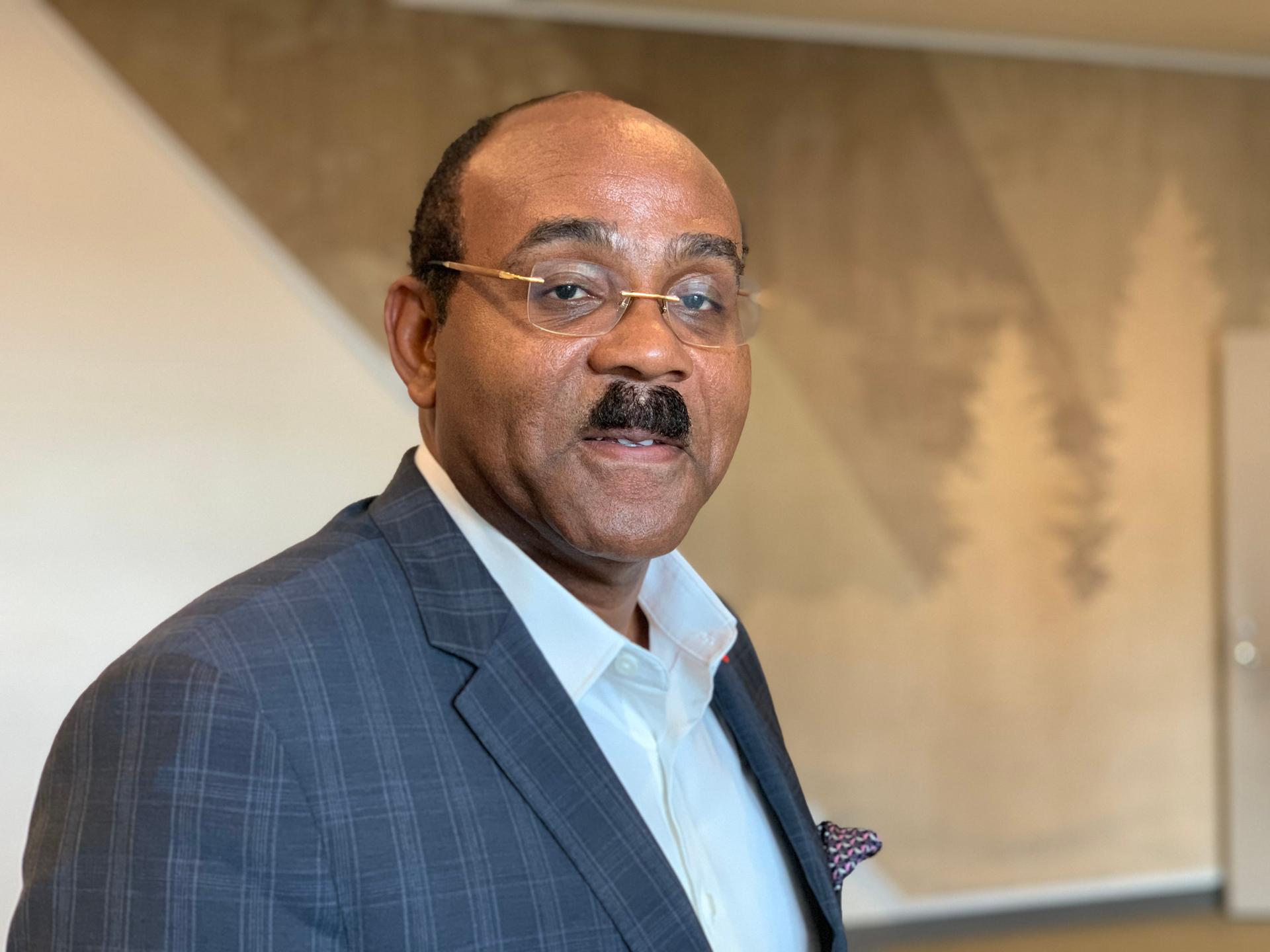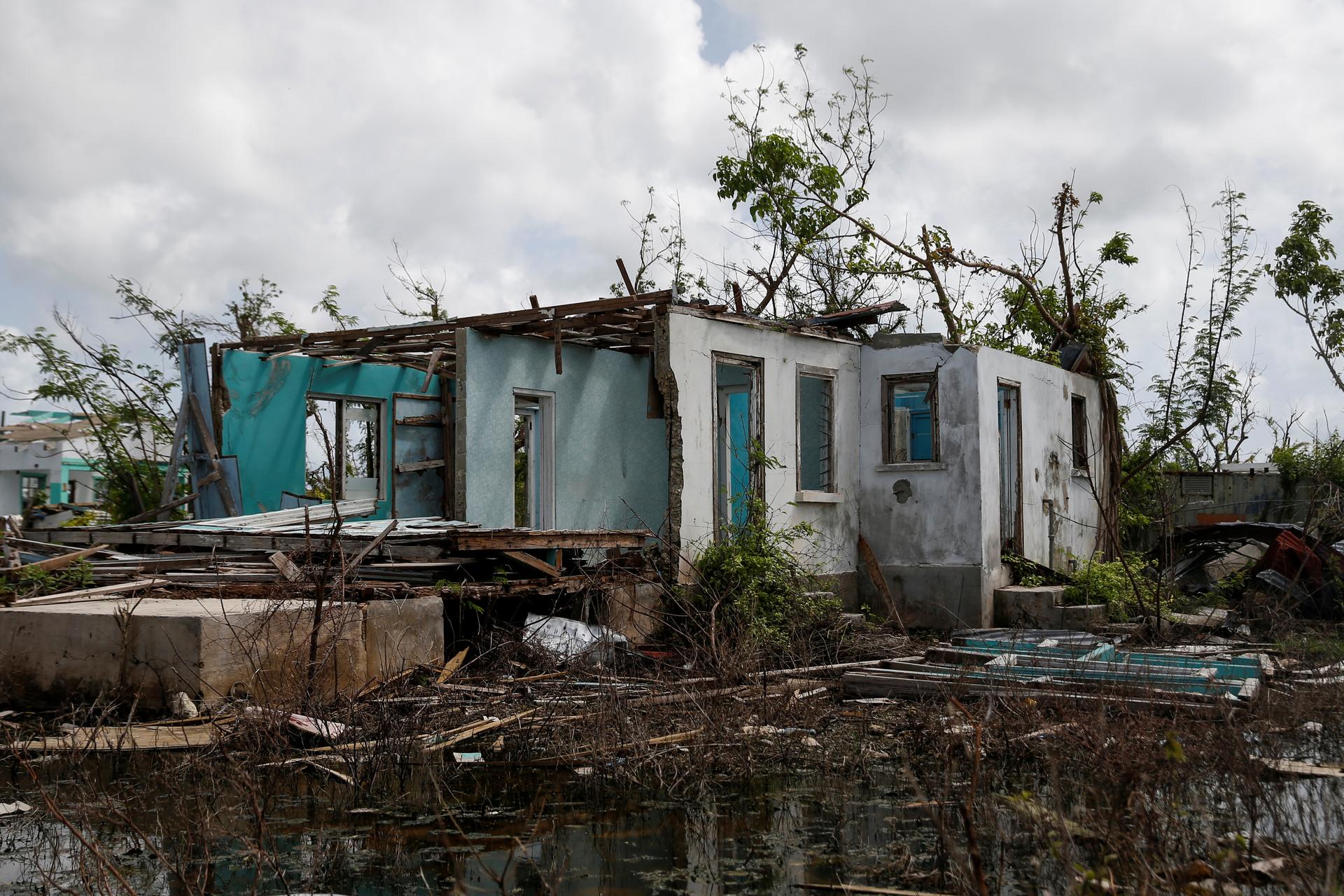‘It is a form of injustice’: Caribbean island nations struggle against rising seas
Homes sit in ruins at Codrington on the island of Barbuda a month after Hurricane Irma struck the Caribbean island nation of Antigua and Barbuda. Photo was taken on Oct. 7, 2017
On Sep. 6, 2017, Hurricane Irma battered the Caribbean nation of Antigua and Barbuda with winds of 185 mph. The island of Antigua suffered minor damage, but Barbuda was left in ruins with over 90% of its properties damaged beyond repair.
Barbuda was left uninhabited after the storm. The national government resettled Barbuda’s 2,000 inhabitants in Antigua while the reconstruction process was taking place.
Antigua and Barbuda’s Prime Minister Gaston Browne, who is at the United Nations General Assembly this week, told The World his government has made significant progress towards recovery, rebuilding about half of the homes in Barbuda and bringing back 60 percent of its original residents. But there is still a lot to be done for Barbuda to come back to normal, he said.

“We have internally displaced persons and that is because their homes have not been rebuilt, in essence, they are homeless and we’re making every effort to restore their homes as soon as possible in order to resettle them in Barbuda,” he said.
Browne spoke to The World’s Carolyn Beeler about climate change, the path to reconstruction in Barbuda, and what the increased sea-level rise projections released by the UN Intergovernmental Panel on Climate Change (IPCC) would mean for his country.
Carolyn Beeler: A new UN report finds that global oceans are set to rise nearly a meter, or three feet, if we reach 3 degrees Celsius of global warming, which we are on track to do by 2100 if current government policies stick. What would that mean for Antigua and Barbuda?
Gaston Browne: They are literally placing our civilization at risk. It means that countries in the Caribbean parts of these countries will be washed away. And that is why we have to be very vocal about the issue of climate change.
On Monday at the UN Climate Action Summit, small island nations including your own pledged to increase the ambition of their carbon-cutting promises under the Paris Agreement. But large emitters were largely silent. What message would you have for those large emitters?
They have to understand that we do not have a planet B to live on. To my knowledge, the only viable planet up to this point is planet Earth. The last thing we want is the obliteration of the Caribbean civilization as a result of sea-level rise and as a result of the general consequences of climate change. We are now faced with the prospects of literally losing our civilization. So they must take this issue seriously and understand that a firm commitment is required. What is required is action. In fact, one of my disappointments is that President Trump did not address the issue of climate change. Clearly, it is not a priority issue for the United States, and I think it’s extremely unfortunate considering that it’s the largest economy in the world, and as a consequence, the United States should be taking greater responsibility.
Two years ago Hurricane Irma devastated the island of Barbuda. Can you describe what the island looked like right after that hurricane and what it looks like now?
Oh, it was absolutely horrendous. There was just an atmosphere of hopelessness at the time. The assessment would have indicated it would have taken at least $220 million US dollars to recover Barbuda. Unfortunately, only about $20 million was allocated, and of that, so far, we have only been able to avail ourselves of about $10 million. So, it means that 95% of the recovery costs will have to be borne by the government of Antigua and Barbuda. With our fiscal challenges, clearly, it’s a very daunting task. However, we have made significant progress. So far we have recovered about 50% of the properties that were destroyed.
You said at the time after that devastation that large developed nations who bear the brunt of responsibility for the crisis of climate change because they’ve committed the most greenhouse gases should pay for the recovery and Barbuda. Why do you think the responsibility lies with them?
Well, it’s proven that the frequent and ferocious storms that we are experiencing are a consequence of climate change, and we all know that the industrialized countries, they are the ones who are benefitting from these fossil fuels. They make all the profits while in the Caribbean we are suffering the consequences. So it is a form of injustice that has to be corrected. Now, one of the problems that we have in the Caribbean is that the islands are generally small with very limited resources. So, whereas the international community is calling upon us to build a more resilient infrastructure, the reality is we don’t have the money. So if we are going to proceed in an equitable way, there is a need for greater global cooperation and for the industrialized countries to take responsibility for their actions.
This interview has been lightly edited for clarity.
The story you just read is accessible and free to all because thousands of listeners and readers contribute to our nonprofit newsroom. We go deep to bring you the human-centered international reporting that you know you can trust. To do this work and to do it well, we rely on the support of our listeners. If you appreciated our coverage this year, if there was a story that made you pause or a song that moved you, would you consider making a gift to sustain our work through 2024 and beyond?
